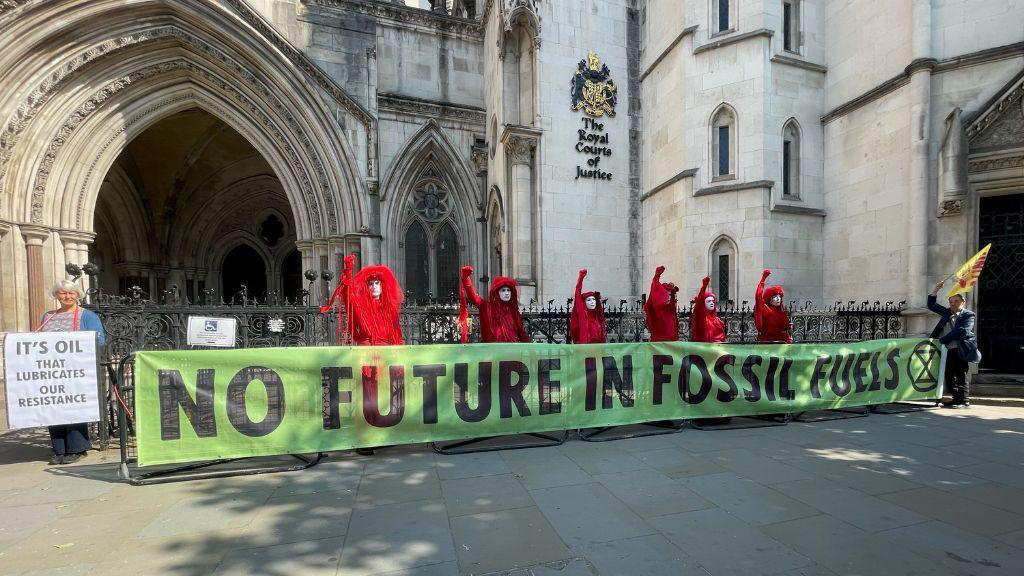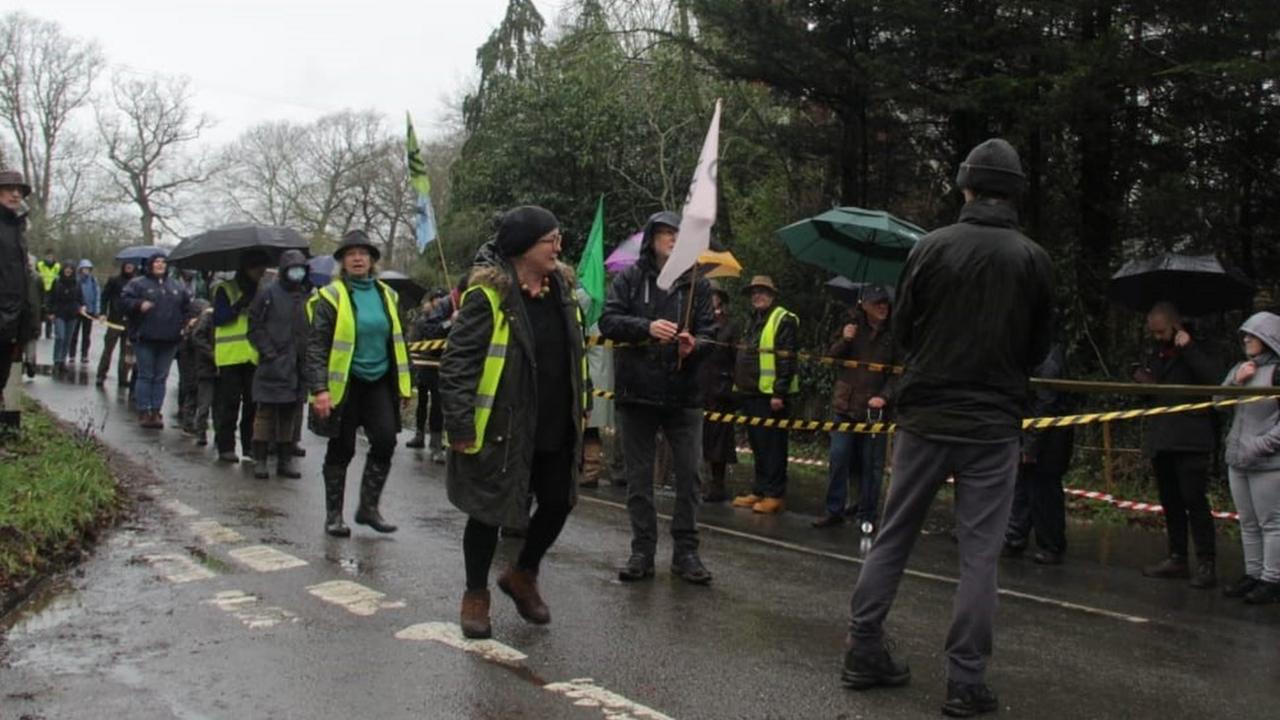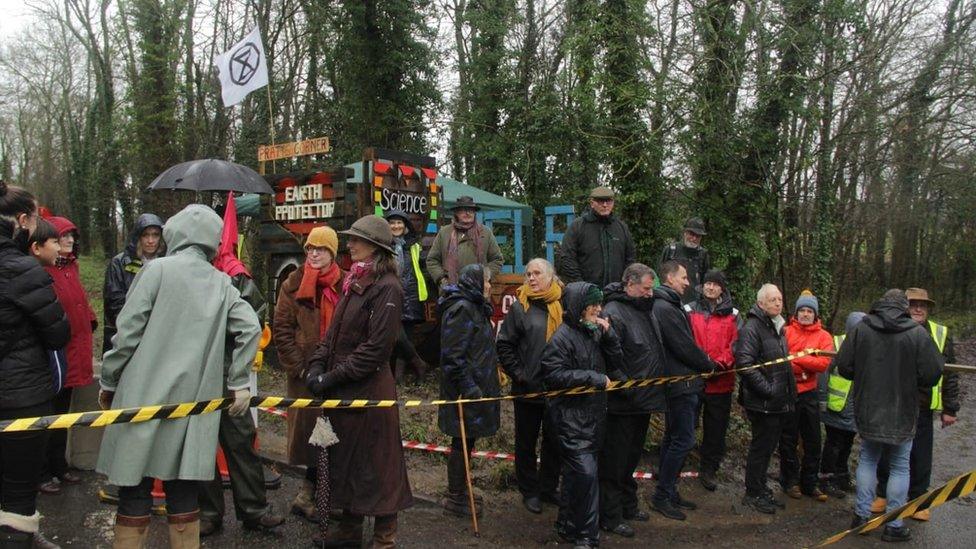Gas drilling decision was inconsistent, court told

Campaigners outside the Royal Courts of Justice protesting over plans to begin gas drilling in rural Surrey
At a glance
A proposed site for drilling in Dunsfold, Surrey, is in an Area of Great Landscape Value
A similar gas drilling project in Cheshire was dismissed due to its impact on climate change
Environmental campaigners are bringing legal action against UK Oil & Gas
- Published
A ministerial decision to allow gas drilling in Surrey was inconsistent with a similar decision issued on the same day, the High Court has heard.
Environmental campaigners Protect Dunsfold and Waverley Borough Council are bringing legal action to stop UK Oil & Gas (UKOG) from digging an exploratory gas well in Dunsfold.
The proposed site is in an Area of Great Landscape Value and sits on the border of an Area of Outstanding Natural Beauty.
During a hearing in London, Protect Dunsfold argued that their situation is “directly comparable” to a gas drilling case near Ellesmere Port, Cheshire.
In that case, the Department for Levelling Up, Housing and Communities (DLUHC) dismissed the potential project due to its impact on climate change.
Surrey County Council previously refused the Dunsfold proposal in 2019, but housing minister Stuart Andrew later approved the plans in 2022.
The area’s MP, chancellor Jeremy Hunt, called the move “bitterly disappointing and wrong both economically and environmentally”.

Protesters at the Royal Courts of Justice amid a legal challenge regarding plans to begin gas drilling in Surrey
In March, campaigners were given the go-ahead to bring a challenge against DLUHC and UKOG over the decision.
Estelle Dehon KC, for Protect Dunsfold, said the Dunsfold and Ellesmere Port decisions were made “concurrently” and published on the same day.
She said: “The defendants’ case is essentially that the Secretary of State is entitled to take an entirely inconsistent position between different appeals on the impact of unmitigated greenhouse gas emissions, even when they are for the same type of development and that impact is identical.
“That position is untenable.”
James Strachan KC, for the DLUHC, said that the campaign group’s argument was “flawed”.
“The fallacy at the heart of Protect Dunsfold’s case is the flawed notion that a planning judgment which involved the weighing of all the relevant considerations to a specific development in one particular location is somehow transferable or applicable to a different development in a different location,” he said.
Follow BBC South East on Facebook, external, on Twitter, external, and on Instagram, external. Send your story ideas to southeasttoday@bbc.co.uk, external.
Related topics
- Published8 January 2022

- Published8 June 2022

- Published9 June 2022

- Published20 July 2022
